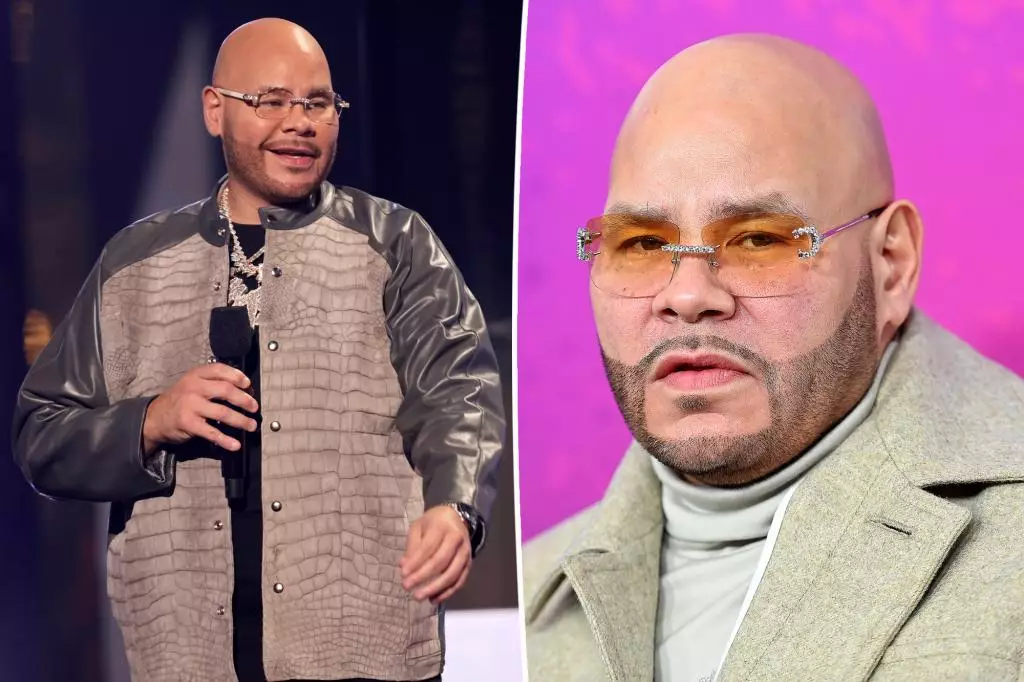The music industry, often seen as a beacon of talent and creativity, can hide dark secrets behind its glamorous facade. Recently, a shocking $20 million lawsuit was filed against rapper Fat Joe by his former hypeman Terrance “T.A.” Dixon, who has made extremely serious allegations of sexual misconduct involving minors. According to court documents, Dixon claims to have directly witnessed Fat Joe engaging in sexual relations with underage girls, specifically mentioning minors aged 15 and 16. The ramifications of such claims extend far beyond the celebrity gossip that typically surrounds the music world. If substantiated, these allegations could signify a severe and disturbing pattern of behavior that raises questions about the industry’s ethics and morality.
An Alleged Pattern of Exploitation
At the core of Dixon’s lawsuit are allegations that Fat Joe not only engaged in sexual acts with minors but also manipulated and exploited them for personal gain. Reports indicate that one of the minors, a Dominican girl, was allegedly provided with cash and material goods in exchange for sexual favors. This points to a troubling dynamic where power and influence were used to coerce young girls into inappropriate relationships. Dixon claims that Fat Joe paid for one girl to have cosmetic surgery, demonstrating a disturbing willingness to exert control over them at an early age. These actions, if proven true, are not merely instances of personal misjudgment but rather an exploitation of the vulnerable that ought to concern society as a whole.
Dixon’s Own Struggles
While the gravity of Dixon’s allegations certainly requires scrutiny, it is equally important to consider his own motivations. Having worked closely with Fat Joe from 2006 to 2019, Dixon describes himself as not just an employee but also a collaborator and confidant. As he brings forth these accusations, there exists a presumption of bitterness stemming from their falling out. Dixon’s claims of financial exploitation and being denied songwriting credits further complicate the narrative. It brings to light a secondary issue of how individuals in the entertainment industry can often feel marginalized, overlooked, or even manipulated themselves.
However, the intertwining of personal grievances with such serious allegations raises questions about intention. Is Dixon’s lawsuit a genuine effort to bring light to sexual exploitation, or is it driven by a desire for revenge and financial gain? The complexity of his motivations could cloud the larger issue at hand.
Fat Joe’s Denial and Legal Counterattack
In the face of such severe accusations, Fat Joe vehemently denies all claims made by Dixon. His lawyer, Joe Tacopina, has publicly dismissed the allegations as unfounded, labeling them a “money grab.” Tacopina asserts that many of the women Dixon claims to be victims have denied any wrongdoing by Fat Joe. In a world where public opinion can sometimes surpass legal considerations, Fat Joe’s capability to effectively counter these allegations is critical. The rapper’s potential to clear his name does not just rest on legal outcomes but also on public perception.
This brings to the forefront the critical issue of how allegations can tarnish reputations long before legal systems have a chance to weigh in. With social media amplifying narratives faster than traditional journalism can respond, Fat Joe finds himself in a battle that transcends the courtroom.
The Broader Implications for the Music Industry
The unfolding drama surrounding Fat Joe and Dixon has broader implications for the music industry as a whole. Each allegation brings forth an urgency to examine how young individuals may be exploited within a domain that prides itself on creativity and self-expression. When major public figures like Fat Joe find themselves under scrutiny, it serves as an opportunity for dialogue about the need for protective measures for vulnerable individuals in the industry.
Such allegations can also trigger a broader examination of industry norms, pushing for changes that will ensure the safety and welfare of underage individuals exposed to the limelight. If established figures are indeed engaging in unacceptable behaviors, it underscores a systemic issue that requires immediate attention.
Given the unceasing developments in this case, both its outcome and the ensuing discussions it prompts will ideally foster a safer, more ethical environment for all participants in the music industry. The conversation shouldn’t stop at the allegations; it should expand into a critical assessment of culture and accountability within entertainment. Whether Dixon’s claims hold merit or are simply a weapon in a personal feud, this case will provoke much-needed scrutiny of practices that should never slide into the shadows again.

